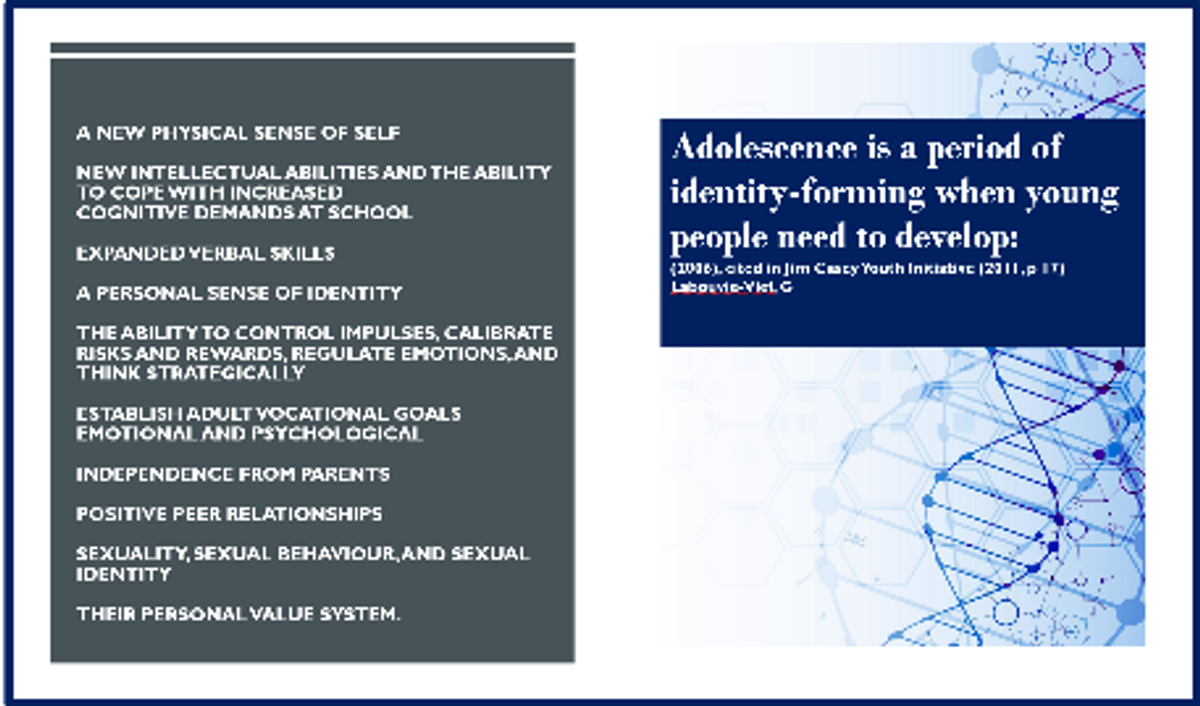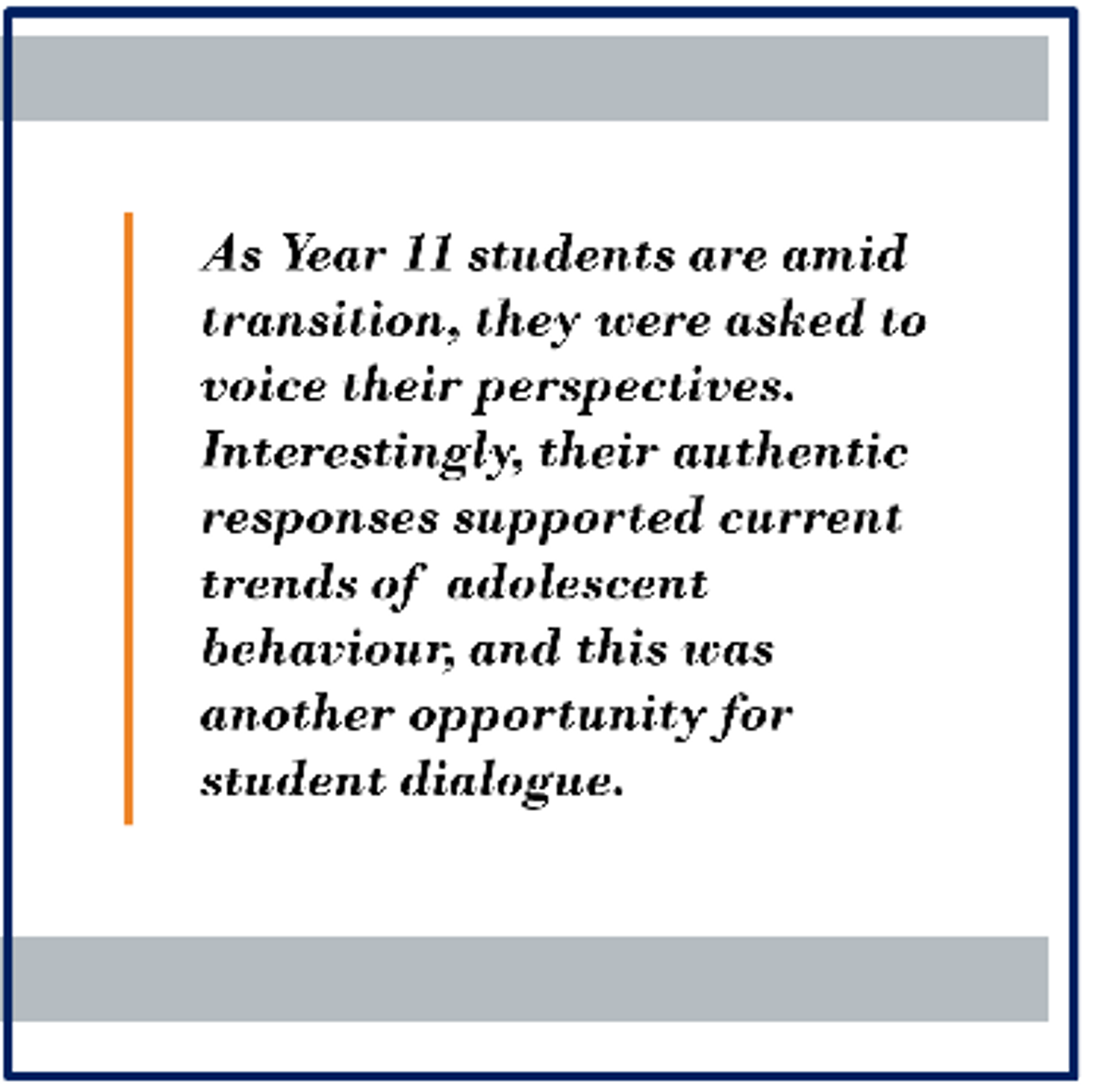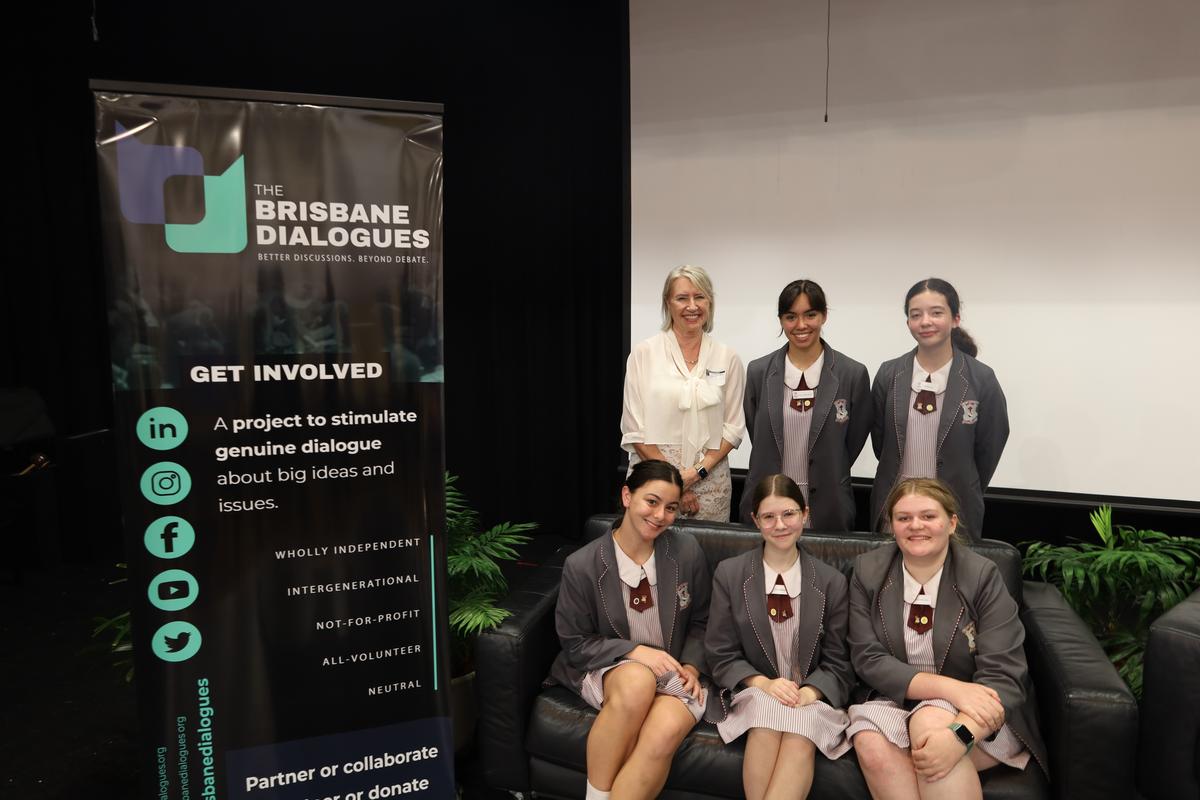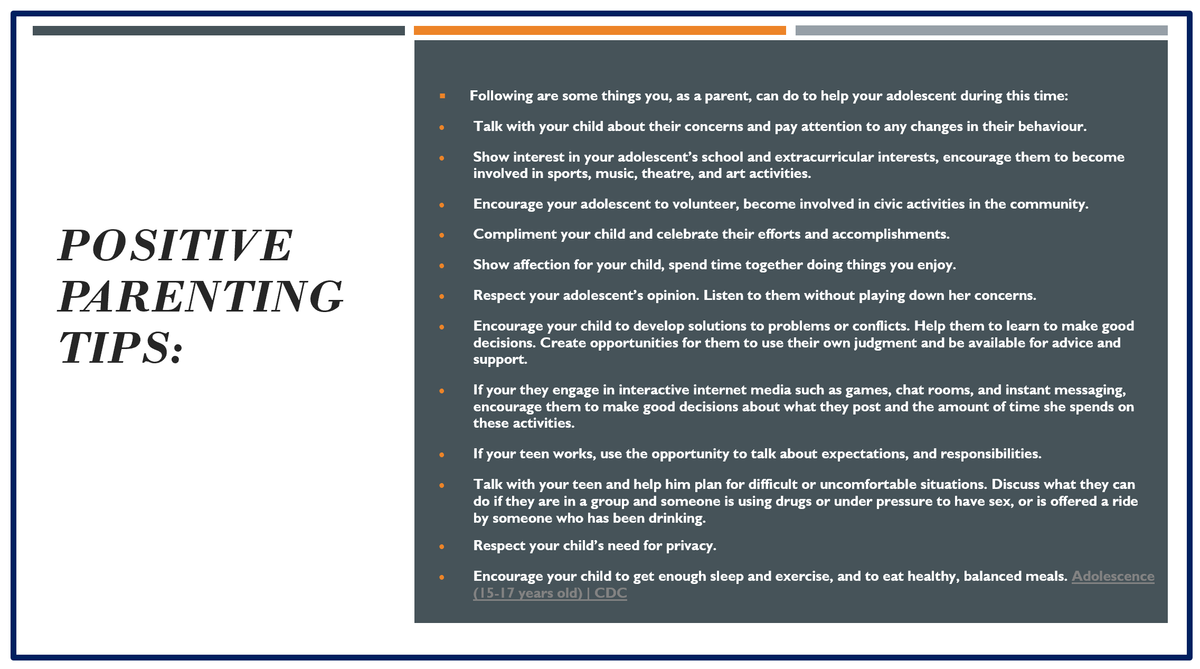Year 11 Pastoral Guardian
Bridget Piper

Year 11 Pastoral Guardian
Bridget Piper




Adolescence is a time of change, where teenagers ponder the meaning of life. During adolescence there is profound physical and physiological maturation as well as cognitive, emotional, and behavioural changes. These have long-lasting implications for adolescents’ economic security, health, and wellbeing. Beyond this, there is an increasing involvement with different social contexts that have direct and indirect impacts on development. Including, proximal social environments involving friends, romantic partners, and family, and distal social environments such as communities, societies, and cultural norms. (Dahl et al., 2018)
In short, friendships and relationships become increasingly important during adolescence, and these relationships can shape both our identity and behaviour. While adolescents, by definition can be deemed physically mature, their conceptual understanding of the world around them and the meaning of life, continues to develop through new interactions with the world. When students at the College were asked, ‘What is the meaning of life?’ the answer, not surprisingly, was mostly their family relationships, and their friendships.
So why, in this developmental transition to adulthood, are these connections fundamental to an adolescent’s wellbeing? And why are these connections inextricably linked to an adolescent’s self-concept and self-worth?


“The relationship I have with my parents is built on trust, which requires both sides to be as open as we can, not lie and disrespect each other’s boundaries, and treat one another like a friend. Trusting one another and having that mutual respect has reduced even the smallest of problems within my relationship with my parents. The most influential person in this stage of my life, approaching my final year of education, would be my stepdad – he has been successful throughout his career as an entrepreneur despite dropping out of school at a young age. Although he has shown me that I shouldn’t put so much stress on myself in school and that I have potential no matter my results, he also has shown me that I should try my best in everything I do, and only then will I be satisfied.”
“For me, positive relationships are built on the core foundations of trust, respect, honesty and communication. These apply to all of my relationships, whether that be with family or friends. Approaching the final year of my formal education, the most influential people in my life are my parents, siblings, and friends. Each person supports and gives me advice, or even is just there to make me laugh. This is important to me as I know I'm not alone in my journey and laughter is the best medicine, especially after a long day or week.”
“As I progress into adulthood, I would describe my relationship with my parents as happy, welcoming, and supportive. They influence me to always do my best and they support me as I learn from my errors.”
“I think my relationship with my parents has remained the same. I have always had a positive relationship with them, although I will try to do my own things to be able to establish my morals, opinions, and boundaries for myself. For now, I think it is important to have some form of privacy for myself; however, I still have that reassurance that if anything happens, I can open up and my parents will help when needed. The most important influences for me are how my parents participate within society. This is important as it makes me aware of how I am expected to act when I am 18, particularly when I must vote, complete taxes etc.
“I have found that my parents are giving me more independence and allowing me to organise myself without their assistance. I think they know the best way to prepare me for adulthood! I find that both of my parents have different interests in the parts of my life. As such, I tell them different parts about my day. I think I’m a bit more energetic than them and try to watch myself in case they are having a difficult day. I think boundaries are vital, especially in the later stages of high school/young adulthood. My brothers for their different views on possible careers, and their differing attitudes about relationships. My parents for their work and home ethics and the way they interact with their co-workers. My grandparents for their political perspectives and their interesting heritage. My teachers for their learning styles and interactions with others.”
“Whilst entering young adulthood my relationship with my parents remains about the same. Except I certainly prefer more independence and don’t like being nagged. Clear communication helps to build a positive relationship and avoid any misinterpretations. Boundaries are very important as they allow for more independence as you get older. With this comes respect and trust which may take some time to gain, but still is as important. My most important influence would be my mum as she motivates and encourages me to be the best that I can be.”
“My relationship with my parents has changed as I have matured. But through the change it has grown and prospered into a relationship of understanding and compassion. As the parent and the child, we must listen to each other and what we have to say, but we also must learn along that way through our mistakes. Boundaries are extremely important in any relationship. As mother and daughter or father and daughter we must understand what is pushing the line. Rules are set out and are important to be followed because in the end as a daughter we know only the best is wanted for us. Mum, dad and my sisters have the most influence on me. I know they believe in me and think I withhold so much potential, so every day I strive to make them proud. They will always encourage me to do my best even if that means failing.”
Some relevant SchoolTV interviews with experts that support the student voices above focus on relationships, the importance and role of setting boundaries, and creating a climate of communication in your family with your young adult.
Ultimately, adolescence is a wonderful time where students have the capacity to flourish. However, we must embrace the necessary failures as these experiences are instrumental in their growth and development into young adults with the capacity to contribute to the world.


Sophia Papantoniou on your Gold Win at the National Hockey Championships in Cairns last month; competing in the Under 18 Women’s Queensland 1, Team. Well done, the College applauds your determination and success!
Year 11 on our successful School Dialogue Event, thank you for your contribution and attendance!




Resources:
Adolescence: A unique period of challenge and opportunity for positive development (apa.org)
Adolescence (15-17 years old) | CDC
www.cdc.gov/ncbddd/childdevelopment/positiveparenting/adolescence2.htm
Dahl, A., and Killen, M. (2018). “Moral reasoning: theory and research in developmental science,”
in The Stevens’ Handbook of Experimental Psychology and Cognitive Neuroscience, 4th Edn, eds J.
T. Wixted and S. Ghetti (New York, NY: Wiley), 323–353.
Labouvie-Vief, G (2006), cited in Jim Casey Youth Initiative (2011, p 17)